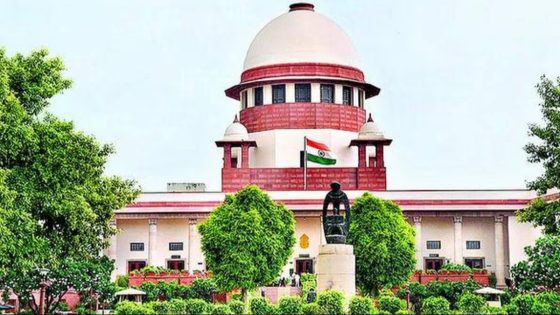The Supreme Court said on Tuesday that labelling abusive language as a criminal offence would in fact be an infraction of free speech rights.
A bench of Justices Aniruddha Bose and P S Narsimha set aside an order by the Delhi High Court to file an FIR against TVF and others for alleged obscenity in a web series.
It said, “It is not possible to control the availability of content containing profanity and swear words by making it illegal.”
While setting aside the Delhi High Court verdict of March 6, 2023, which had upheld an order of the Additional Chief Metropolitan Magistrate (ACMM) asking the Delhi Police to register an FIR in connection with an episode in the web series ‘College Romance’, against TVF, the show’s director Simarpreet Singh and actor Apoorva Arora, under the Information Technology Act, the bench said noting that the high court had taken the meaning of the language in its literal sense, outside the context in which such expletives have been spoken.
“We are of the opinion that the High Court was not correct in its conclusion that the web series has obscene content and that therefore the provisions of Section 67 of the IT Act are attracted. No offence of publication or transmission of any material in electronic form, which is obscene, lascivious, or appealing to prurient interest, and/or having the effect of tending to deprave and corrupt persons, as provided under Section 67 of the IT act, is made out,” the judgement read.
“The availability of content that contains profanities and swear words cannot be regulated by criminalising it as obscene. Apart from being a non-sequitur (a conclusion that does not follow logically), it is a disproportionate and excessive measure that violates freedom of speech, expression, and artistic creativity,” the bench said.
“Such an approach unduly curtails the freedom of expression that can be exercised and compels the maker of the content to meet the requirements of judicial propriety, formality, and official language,” the court said.
“The high court has equated profanities and vulgarity with obscenity, without undertaking a proper or detailed analysis into how such language, by itself, could be sexual, lascivious, prurient, or depraving and corrupting. While a person may find vulgar and expletive-filled language to be distasteful, unpalatable, uncivil, and improper, that by itself is not sufficient to be obscene,” the court said.
Pointing that the web series is a light-hearted show on the college lives of young students, using expletives to express anger, rage, frustration, grief and excitement, instead of sexual feelings or lust, the judgement stated, “It is clear that the use of these terms is not related to sex and does not have any sexual connotation. By taking the literal meaning of these words, the high court failed to consider the specific material (profane language) in the context of the larger web-series and by the standard of an ordinary man of common sense and prudence.”
The order came on a complaint which was filed against Episode 5 of season one of the web series, titled ‘Happily F****d Up’, alleging it had vulgar and obscene language in its title.
Source Agencies




